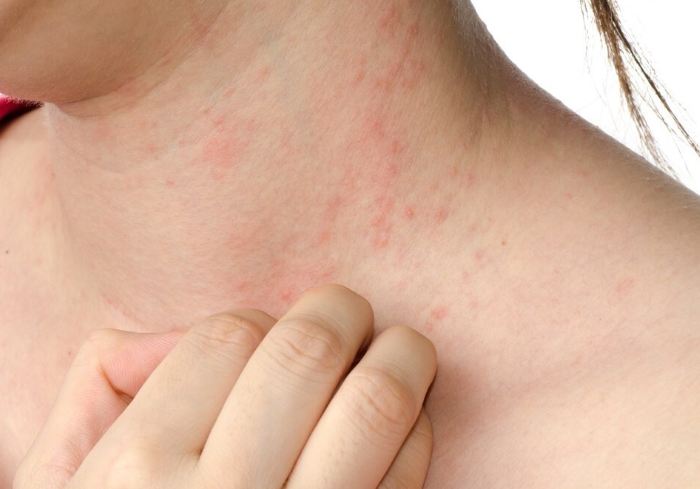
An allergy is an excessive sensitivity of the body to the repeated influence of specific irritants on it. Allergy manifestations can be different: in children, the most common form of manifestation is acute respiratory diseases, while in adults it often manifests itself on the skin and mucous membranes in the form of urticaria, dermatitis, eczema.
Currently, the treatment of allergic diseases is carried out mainly with drugs that suppress the immune response. This in itself does not contribute to the normal functioning of the human body, moreover, there are no medicines that can completely cure allergies. Despite the efforts of scientists, the methods of treatment that exist today serve only to reduce the clinical symptoms of allergic manifestations, and not to treat the disease, which is why the pathological process is aggravated over the years, and a person’s life begins to depend on the availability of antiallergic drugs.
Meanwhile, A. G. Polotebnov, the founder of the Soviet school of dermatology, constantly pointed out the leading role of the nervous system in the origin of many skin diseases. He argued that treatment directed not against the "rash", which is only one of the variants of a nervous breakdown, but against the main, "nervous suffering, gives the most sure, most brilliant results." Another prominent dermatologist P. V. Nikolsky, having analyzed in detail changes in the skin and its diseases, including nervous itching, eczema, erythema, urticaria, etc., called feelings (emotions) the cause of them.
The reason for this is that during the development of the fetus during pregnancy, both the epidermis (surface layer of the skin) and its nervous system have a common origin. Therefore, in the event of any stressful situation, a person may develop allergic forms of reactions in the form of skin inflammation and itching.
Thus, allergies are based on chronic stress, which leads to disruption of the nervous and immune systems, and therefore, allergy is psychosomatic illness. According to an interdisciplinary group of Spanish researchers led by Professor J. Montoro, in the scientific work "Stress and Allergy", the body's response to stress, that is, a threat to existence and satisfaction of needs, is the mobilization of physiological and psychological resources, that is, stress characterizes the imbalance between needs organism and the possibility of their satisfaction.
And the ability to meet needs largely depends on the type of personality. Studies show that women with allergies are predisposed to hypochondria, hysteria and social introversion, and their self-esteem is low, while men with allergic rhinitis, in addition to social introversion, had higher rates of depression and paranoia.
As in every psychosomatic illness, a predisposition that occurs in childhood due to an overload of the nervous system plays a huge role in the formation of allergies. For example, having examined a group of sick children with manifestations of allergies, H. Miller and D.W. Baruch found that 98% suffer from "maternal rejection" (mother-child system disorders), while in the control group (without allergies), these disorders were observed in only 24% of children. Pathological personality traits were found in 68% of mothers with a predominance of anxious and suspicious, affectively excitable, hysteroid and epileptoid character traits, and also in 40% of fathers, predominantly affectively excitable and emotionally labile.
As a result, such children, and then adults, were more likely to have residual effects of early organic brain damage and subsequent depression.
The well-known psychologist I. G. Malkina-Pykh writes about allergies as a signal of our body, showing suppressed aggression, disagreements, insufficient openness, excessive susceptibility in the form of reflex urticaria and rashes. Skin diseases most often affect those patients who did not receive enough caress and warmth from their parents in childhood.
Subsequently, people with future allergies often experience psycho-traumatic situations, among which a significant place belongs to irreversible losses (death or sudden disability of loved ones), or their long-term chronic illness, other difficult experiences (failures in social life or work, a decrease in family income). , dismissal from work, intra-family and interpersonal conflicts, often leading to divorces, etc.).
That is why psychotherapy must necessarily be included in the treatment of allergies and their skin manifestations. Especially effective is hypnotherapy, during which the psychotherapist helps the patient to remember the stressful events that provoked the development of the disease. Returning a person in a state of hypnosis to the past, the hypnotherapist turns off the mechanisms of the pathological connection that causes a reaction on the skin in the form of an allergy.
A good non-drug treatment is also transcranial electrical brain stimulation (TES). It is widely used to relieve pain of various origins due to its analgesic effect, and also has a positive effect on the processes of reparation and an increase in the psychophysiological status of a person, reduces anxiety and depression. A promising treatment for inflammation and psycho-emotional imbalance associated with allergies is infusion treatment with ketamine.
Guided by the principles of integrative, holistic medicine, combining psychotherapy with ketamine infusions, transcranial electrical stimulation, rehabilitation of the brain "Neurohelp", body-oriented therapy and art therapy, a significant improvement in the health of patients can be achieved.
